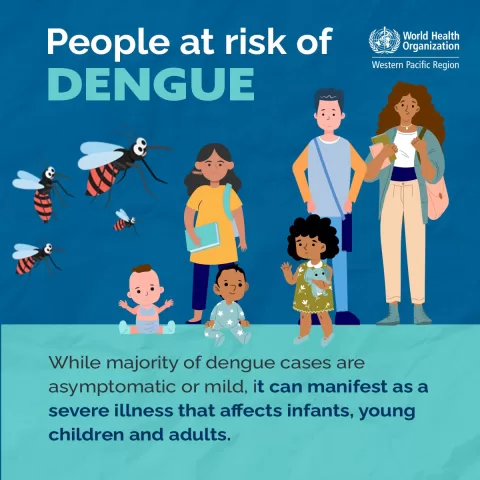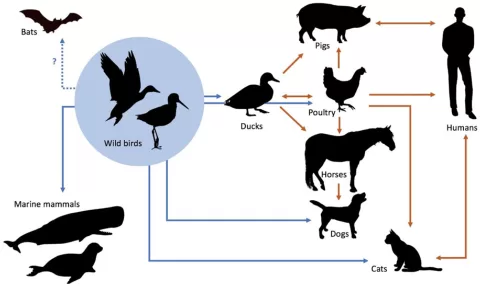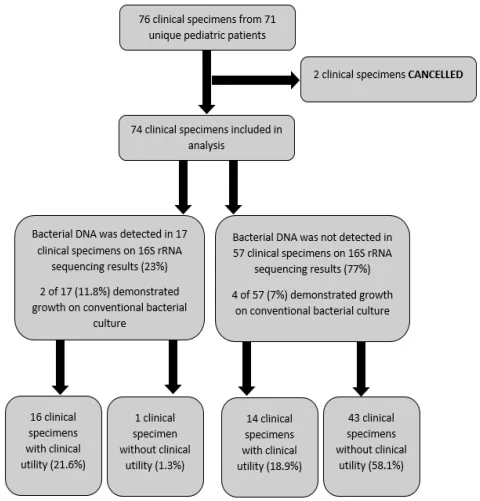The recent Salmonella outbreak has raised significant health concerns, particularly following the U.S. Centers for Disease Control and Prevention (CDC) report of 32 new cases linked to cucumbers imported from Mexico, pushing the total number of infections to 100 across 23 states. This alarming incident, attributed to Salmonella Typhimurium, highlights the ongoing threat of foodborne diseases that can easily disrupt public health. As authorities work diligently to identify the source, the recall of implicated cucumbers underscores the critical response needed to safeguard consumer health. In addition to the rising number of infections, the serious implications of this outbreak could escalate into a public health emergency if not addressed effectively. Stay informed with the latest health news as investigations continue and measures are implemented to curb further spread of this infectious disease.
The ongoing epidemic involving Salmonella, particularly linked to recent cucumber imports, underscores urgent food safety concerns. Identified as a prime example of a foodborne illness, this outbreak showcases the complexities of monitoring food sources and public health safety measures. As authorities investigate the origins of Salmonella Typhimurium, the potential for widespread health issues grows, prompting necessary recalls and consumer advisories. This situation serves as a reminder of the vital role played by local and federal agencies in preventing disease outbreaks and ensuring public well-being. Not only does this situation raise awareness about food safety, but it also emphasizes the proactive steps needed to maintain health standards in the food industry.
Understanding the Salmonella Outbreak Linked to Cucumbers
The recent Salmonella outbreak linked to cucumbers has raised significant public health concerns across the United States. The outbreak, identified as Salmonella Typhimurium, has now affected a total of 100 individuals spanning 23 states. With 32 new reported cases in just one update, it highlights how quickly foodborne diseases can spread. Cucumbers imported from Mexico have been pinpointed as the source, leading to a widespread recall. Such outbreaks underline the importance of robust food safety protocols to prevent the spread of harmful pathogens.
CDC investigations identified several subclusters associated with the outbreak, including occurrences in assisted living facilities and school districts. Each case not only poses a risk to individual health but also places a strain on healthcare resources. Understanding the transmission channels of this foodborne disease is crucial in curbing its spread. As the health community works diligently to trace the outbreak, public awareness campaigns are also necessary to educate consumers on food handling and safety practices.
The Impact of Food Recalls on Public Health
Food recalls represent a vital mechanism for protecting public health while managing foodborne disease outbreaks. The recent cucumber recall acts as a reminder of the fragility of our food supply chain and the potential hazards that can arise from imported goods. When products are contaminated with pathogens like Salmonella, swift action is essential to prevent further infections. The CDC works alongside state health departments to identify sources of contamination quickly, ensuring that consumers are informed about active recalls.
Recalls can be distressing for consumers, especially when they affect commonly used grocery items. However, these actions are critical in mitigating risks associated with foodborne diseases. While recalls help to protect the public, they also emphasize the need for continuous monitoring of food safety practices at all levels of production and distribution. Educating the public on recognizing recall notices and understanding safe food practices can empower consumers to make safer choices.
Public Health Responses to Foodborne Disease Outbreaks
The response to foodborne disease outbreaks like the current Salmonella situation involves coordinated efforts among various health authorities. The CDC’s role is pivotal, as they gather data, confirm cases, and communicate findings to the public. These engagements not only help manage the situation but also contribute to longer-term improvements in the food safety system. For example, during this outbreak, health officials have focused on enhancing tracing methods for contaminated products, which can prevent future occurrences.
Moreover, the outbreak has implications for public health policies, prompting discussions on stricter regulations on food imports. As foodborne diseases can escalate into significant health emergencies, authorities must prioritize research on food safety innovations to better mitigate risks. These collective responses are essential in ensuring that the food supply remains safe and that public trust in food systems is maintained.
Rising Concerns Over Salmonella Typhimurium
Salmonella Typhimurium has emerged as a concerning pathogen in public health, associated not only with recent cucumber outbreaks but also with various food products worldwide. This strain of Salmonella is known for its ability to cause severe gastrointestinal illness, often requiring hospitalization for affected individuals. With the current outbreak resultantly raising alarms, health officials are advocating for heightened awareness about symptoms and the importance of seeking early medical advice after exposure.
The multiplex nature of this strain’s outbreaks signifies a growing challenge for food safety regulators. Strategies must evolve to address how food, especially with increasing globalization, is grown, processed, and transported. Awareness campaigns, alongside rigorous inspections and testing protocols, play a crucial role in combating this public health threat. The healthcare and agricultural sectors must collaborate to reduce the risk of Salmonella Typhimurium and other foodborne illnesses.
The Role of Foodborne Diseases in Public Health Discourse
Foodborne diseases like those caused by Salmonella outbreaks have become pivotal issues in public health discourse. The discussion emphasizes not only the health impacts but also underscores systemic vulnerabilities in our food supply chains that can lead to widespread outbreaks. Promoting dialogue on food safety measures and disease prevention strategies encourages proactive consumer behavior and demands accountability from food producers.
As foodborne diseases increasingly become a topic of public and media focus, authorities must prioritize transparency in their responses. This involves timely communication regarding risks and recalls to ensure community safety. Cultivating an informed public will support better health outcomes and foster trust in the institutions tasked with safeguarding public health.
Cucumbers: A Growing Concern in Food Safety
The link between cucumbers and the recent Salmonella outbreak has placed a spotlight on the safety of fresh produce. While cucumbers are generally perceived as healthy additions to diets, the risks associated with contamination can be significant. This situation serves as a reminder that all fresh produce must be handled with care. Awareness of foodborne pathogen transmission through fruits and vegetables promotes better hygiene practices among consumers, which is vital for preventing future outbreaks.
Research shows that foodborne illness rates can be reduced through thorough washing of produce and understanding safe food preparation techniques. As the public grapples with this latest outbreak, educational initiatives focusing on produce safety are increasingly important. Such campaigns can help mitigate the risks that come with consuming raw vegetables and support the overall health of communities.
Navigating the Challenges of Food Imports
The importation of food products presents significant challenges regarding food safety, with recent outbreaks illustrating the potential risks involved. The cucumber-associated Salmonella outbreak has raised questions about the safety protocols in place for imported goods. Addressing these challenges requires a robust system of checks and balances, ensuring that imported food meets safety standards at all points, from production to consumer markets.
Regulatory oversight must adapt to improve safety measures, especially as consumer demand for globally sourced foods grows. By implementing stricter inspections and facilitating clear information flow between growers and regulatory agencies, the food import system can become more resilient to threats like Salmonella contamination. Enhanced industry compliance and transparency will fortify public trust and protect consumer health.
Public Health Education: Preparing for Foodborne Threats
Public health education plays a crucial role in preparing communities to respond effectively to foodborne threats like Salmonella outbreaks. Educational campaigns must engage the public to recognize symptoms and understand the importance of reporting suspected cases promptly. Knowledge empowers individuals to make safer food choices and strengthens community resilience against future outbreaks.
Additionally, health authorities should focus on disseminating information regarding proper food handling practices and fostering a culture of safety within food-related establishments. Integrating food safety education into school curricula can create a generation informed about the importance of hygiene practices. Such proactive measures are vital in mitigating the impact of foodborne diseases and ensuring community health.
Strengthening Food Safety Regulations
The persistence of foodborne illnesses like Salmonella Typhimurium highlights the necessity for strengthening food safety regulations. Ongoing outbreaks necessitate an in-depth evaluation of existing systems to identify potential gaps in safety protocols. Legislative reviews should explore harsher penalties for non-compliance and incentivize practices that promote food safety throughout the supply chain.
In addition, cooperative initiatives between government agencies and the food industry can further safeguard public health. Collaborative research on advanced safety technologies and procedures can revolutionize how food products are inspected and monitored, ultimately leading to a decrease in contamination incidents. By prioritizing food safety, we can ensure a healthier population and a more robust food system.
Frequently Asked Questions
What is the current status of the Salmonella outbreak linked to cucumbers?
As of December 20, 2024, there have been 100 reported cases of Salmonella Typhimurium outbreak linked to cucumbers imported from Mexico. The outbreak has affected 23 states and resulted in 25 hospitalizations, however, no deaths have been reported.
How did the Salmonella outbreak from cucumbers originate?
The Salmonella Typhimurium outbreak linked to cucumbers was traced back to a common grower in Mexico. This investigation by the CDC led to a recall of the affected cucumbers and identified multiple cases across various states.
What symptoms should I watch for during a Salmonella outbreak?
During a Salmonella outbreak, symptoms to watch for include diarrhea, fever, abdominal cramps, and vomiting. If you have consumed cucumbers linked to the Salmonella outbreak and experience these symptoms, seek medical attention.
Are there any recalls associated with the recent Salmonella outbreak?
Yes, the recent Salmonella outbreak has led to a recall of cucumbers imported from Mexico after investigations identified them as the source of the Salmonella Typhimurium infections.
What should I do if I think I have contracted Salmonella from the cucumber outbreak?
If you believe you have contracted Salmonella from the cucumber outbreak, seek medical attention immediately. Staying hydrated and informing your doctor about the recent outbreak can help in your treatment.
How can I prevent Salmonella infection during outbreaks?
To prevent Salmonella infections, particularly during outbreaks, wash cucumbers and other fruits thoroughly, avoid cross-contamination, cook foods to safe temperatures, and practice good hygiene by washing hands frequently.
What actions are public health officials taking regarding the Salmonella outbreak?
Public health officials, including the CDC, are monitoring the Salmonella outbreak closely, conducting investigations to trace the source, advising on food recalls, and educating the public about safety measures to prevent infection.
What are the common causes of Salmonella outbreaks?
Common causes of Salmonella outbreaks include contaminated food products, particularly raw fruits and vegetables, undercooked poultry or eggs, and cross-contamination in kitchens. In recent news, cucumbers were linked to the current outbreak.
Should I be concerned about foodborne diseases like this Salmonella outbreak?
Yes, foodborne diseases, including Salmonella outbreaks, can pose significant health risks. It is essential to stay informed and practice food safety measures to reduce the risk of infection.
How does the Salmonella Typhimurium strain differ from other strains?
Salmonella Typhimurium is one of many strains of Salmonella, and it is commonly associated with gastrointestinal illnesses. Its characteristics can lead to more severe cases, as evidenced in recent outbreaks linked to specific food sources.
| Key Point | Details |
|---|---|
| Salmonella Outbreak | 100 cases reported linked to cucumbers from Mexico. |
| Hospitalizations | Total of 25 individuals hospitalized due to Salmonella Typhimurium. |
| Affected Locations | Seven subclusters identified across facilities and restaurant in the U.S. |
| Investigation Result | Outbreak traced back to a specific grower in Mexico, leading to cucumber recall. |
Summary
The recent Salmonella outbreak has raised significant public health concerns, highlighting the dangers associated with foodborne illnesses. With 100 confirmed cases resulting from contaminated cucumbers imported from Mexico, health officials are taking stringent measures to monitor and prevent further spread. It’s crucial for consumers to stay informed about such outbreaks to mitigate health risks.
The content provided on this blog (e.g., symptom descriptions, health tips, or general advice) is for informational purposes only and is not a substitute for professional medical advice, diagnosis, or treatment. Always seek the guidance of your physician or other qualified healthcare provider with any questions you may have regarding a medical condition. Never disregard professional medical advice or delay seeking it because of something you have read on this website. If you believe you may have a medical emergency, call your doctor or emergency services immediately. Reliance on any information provided by this blog is solely at your own risk.








